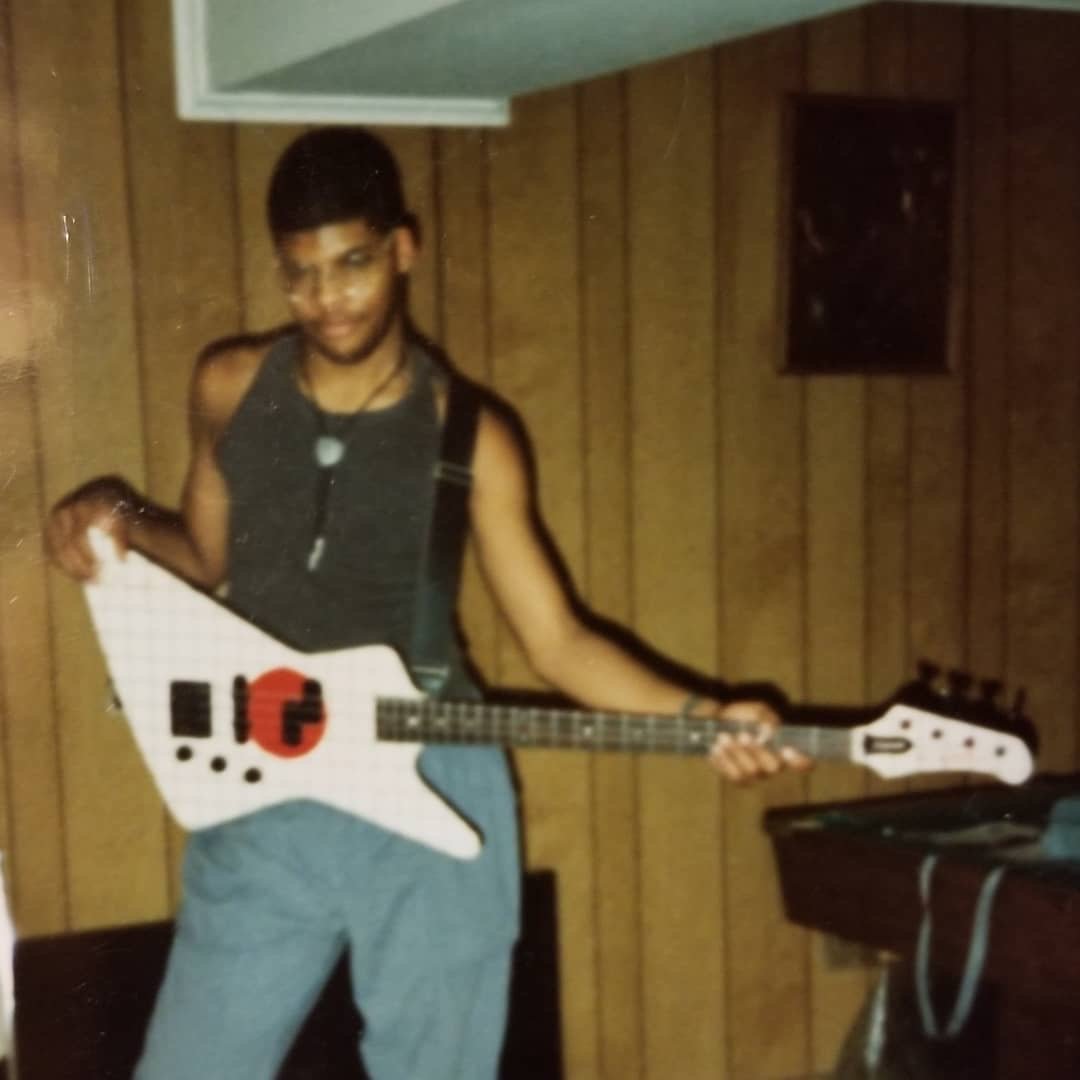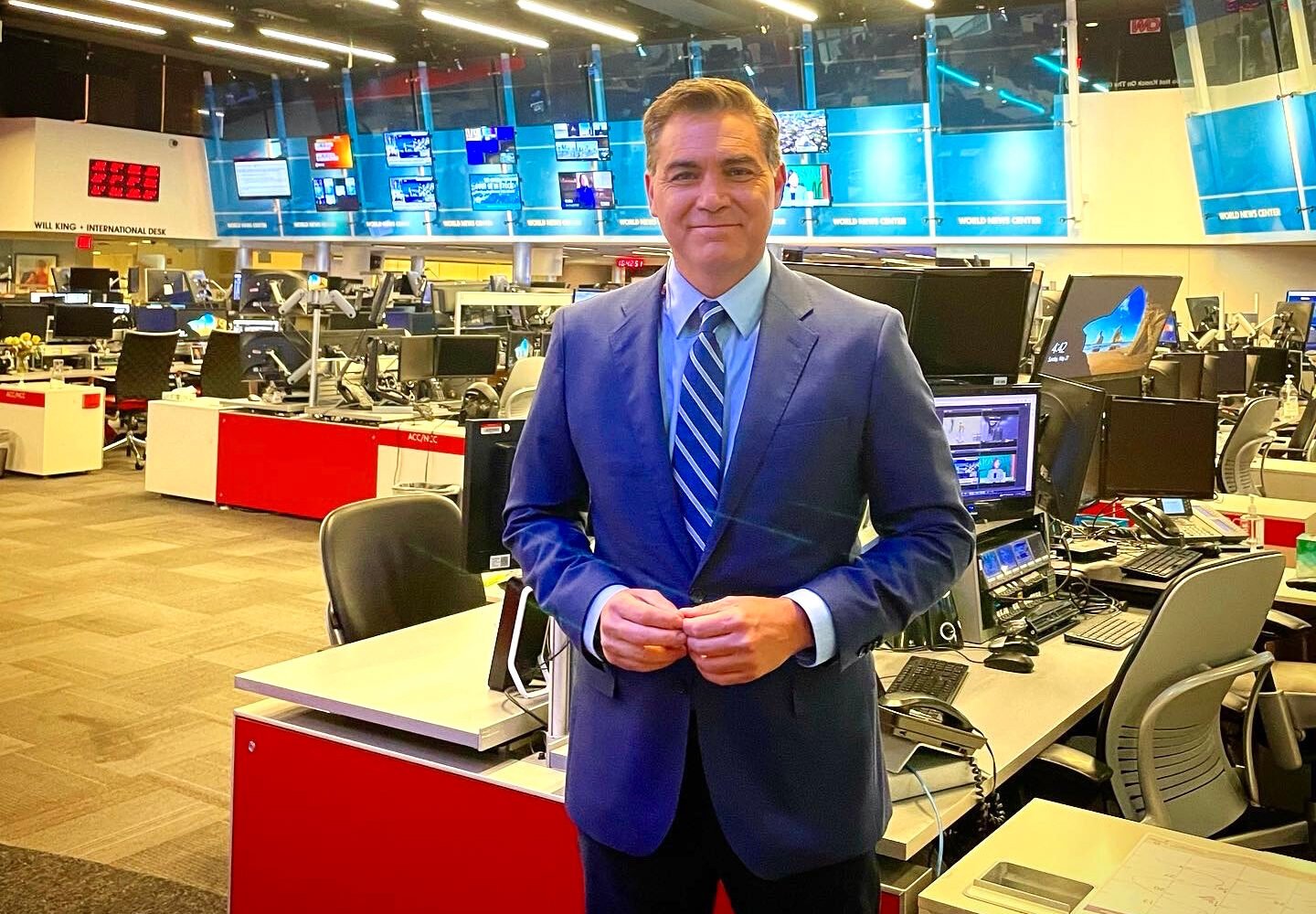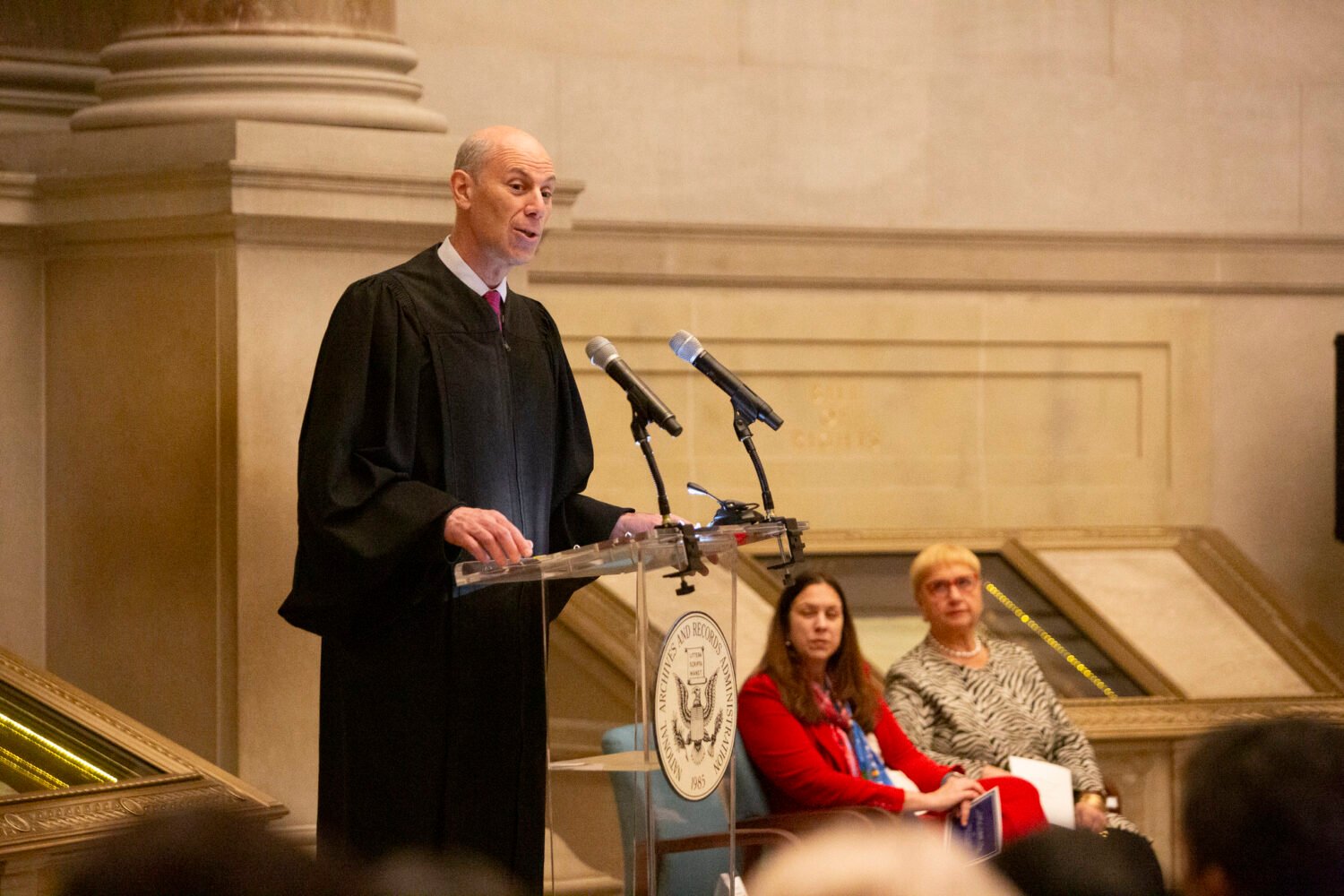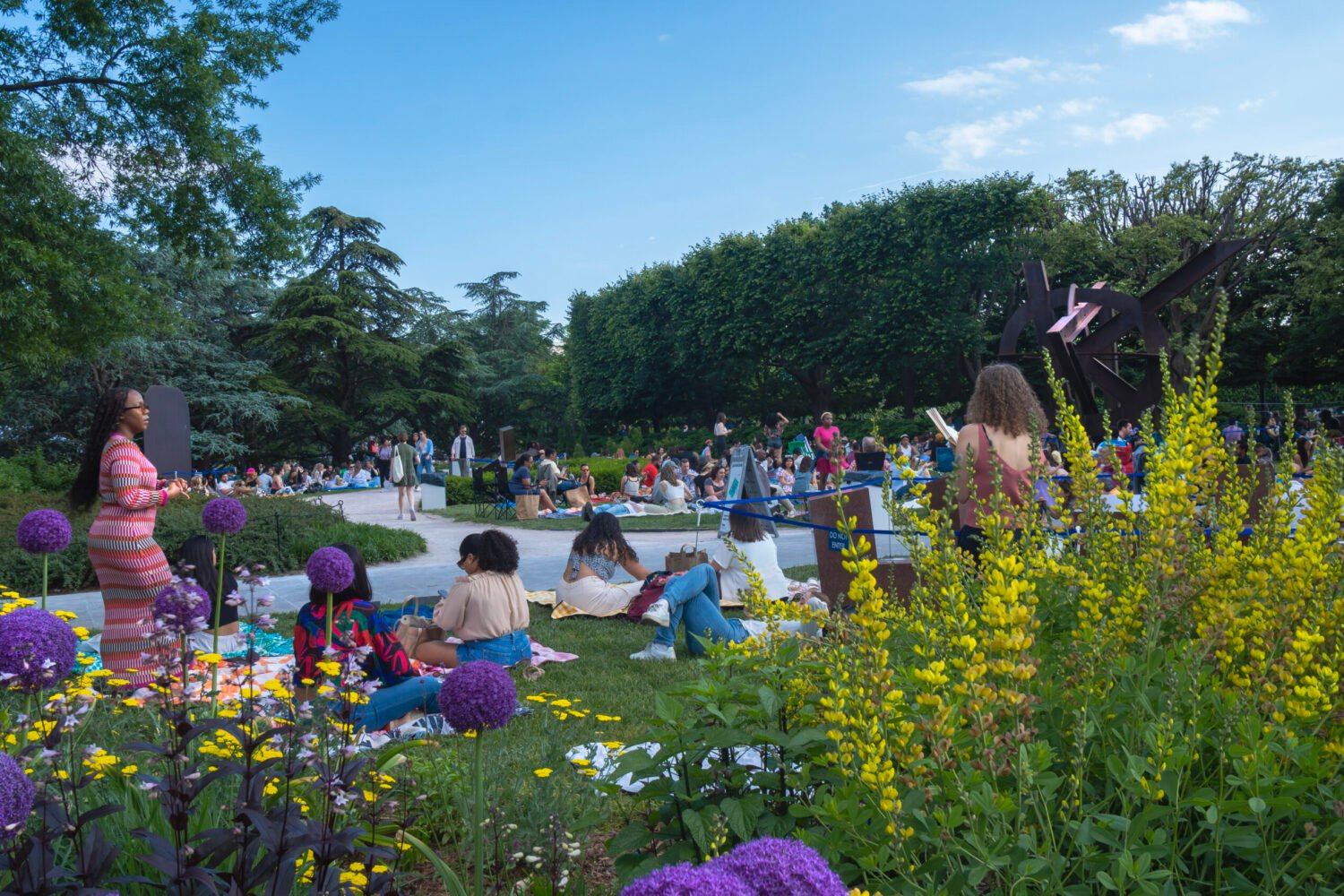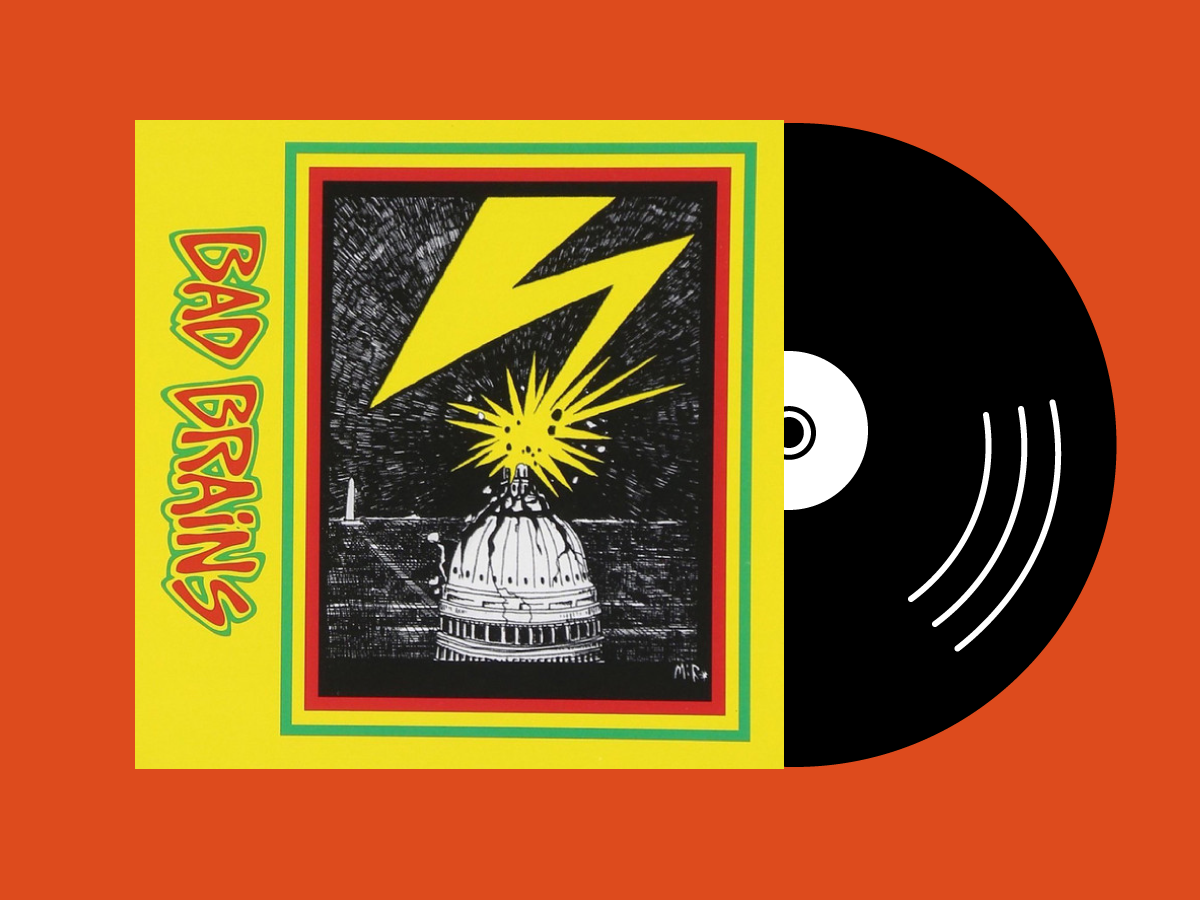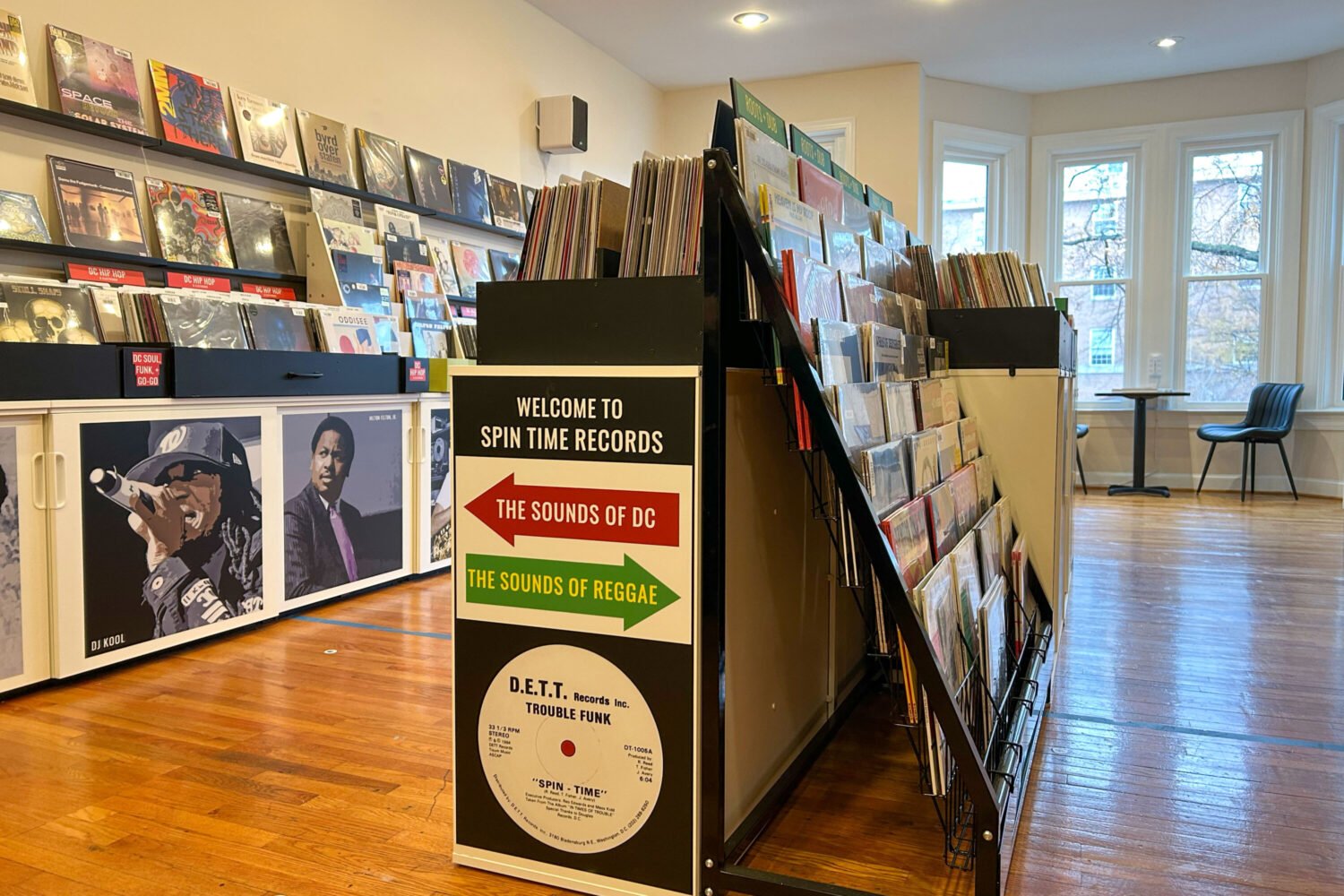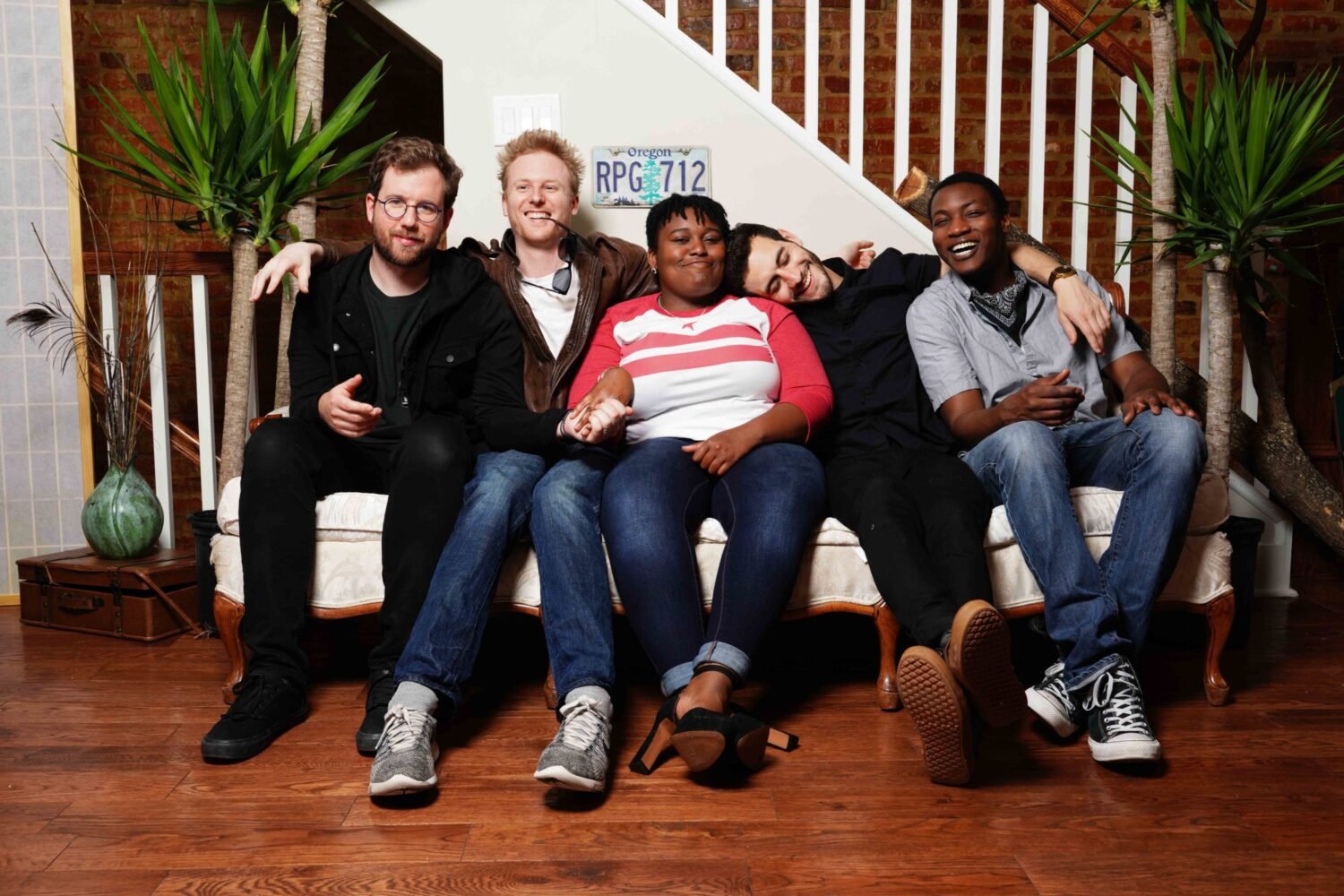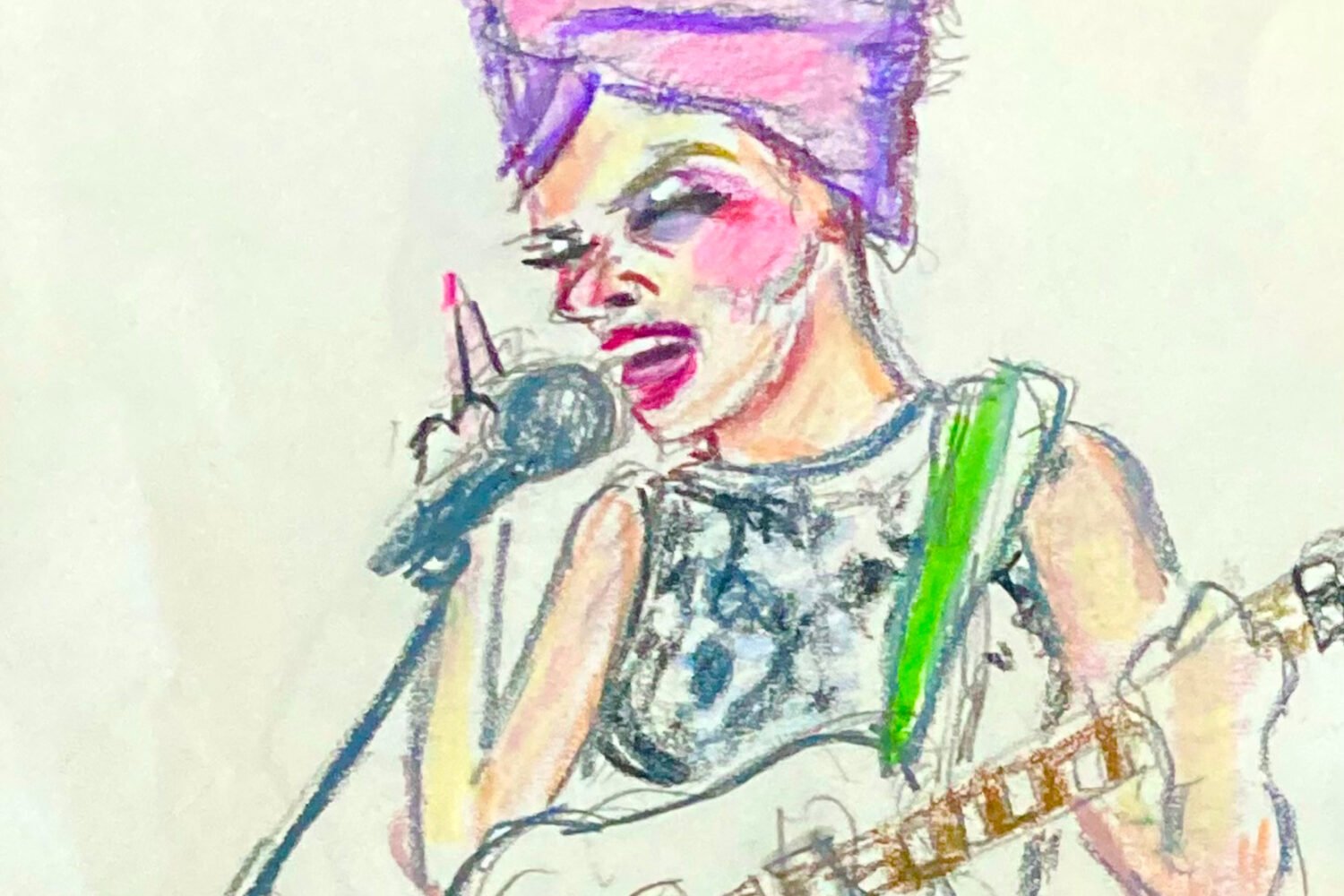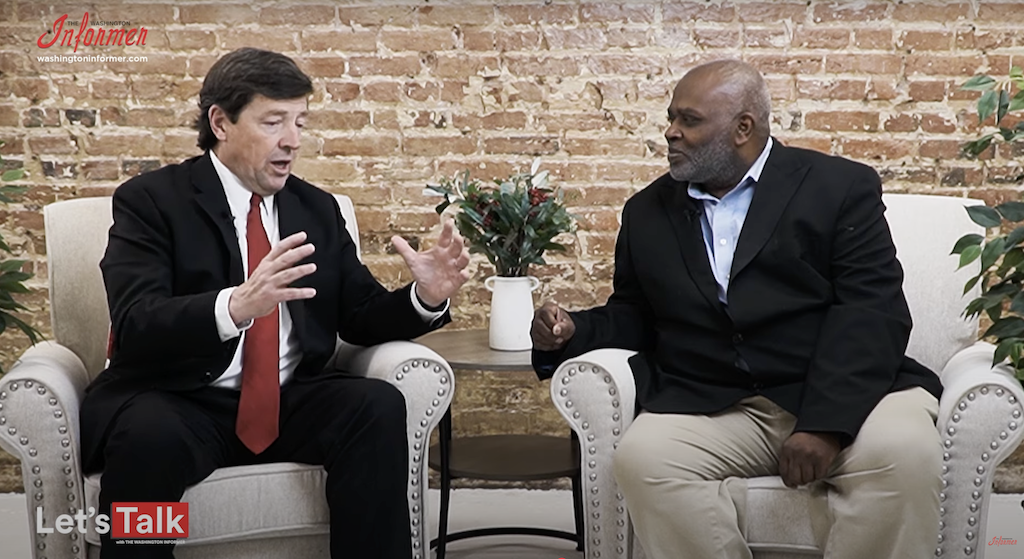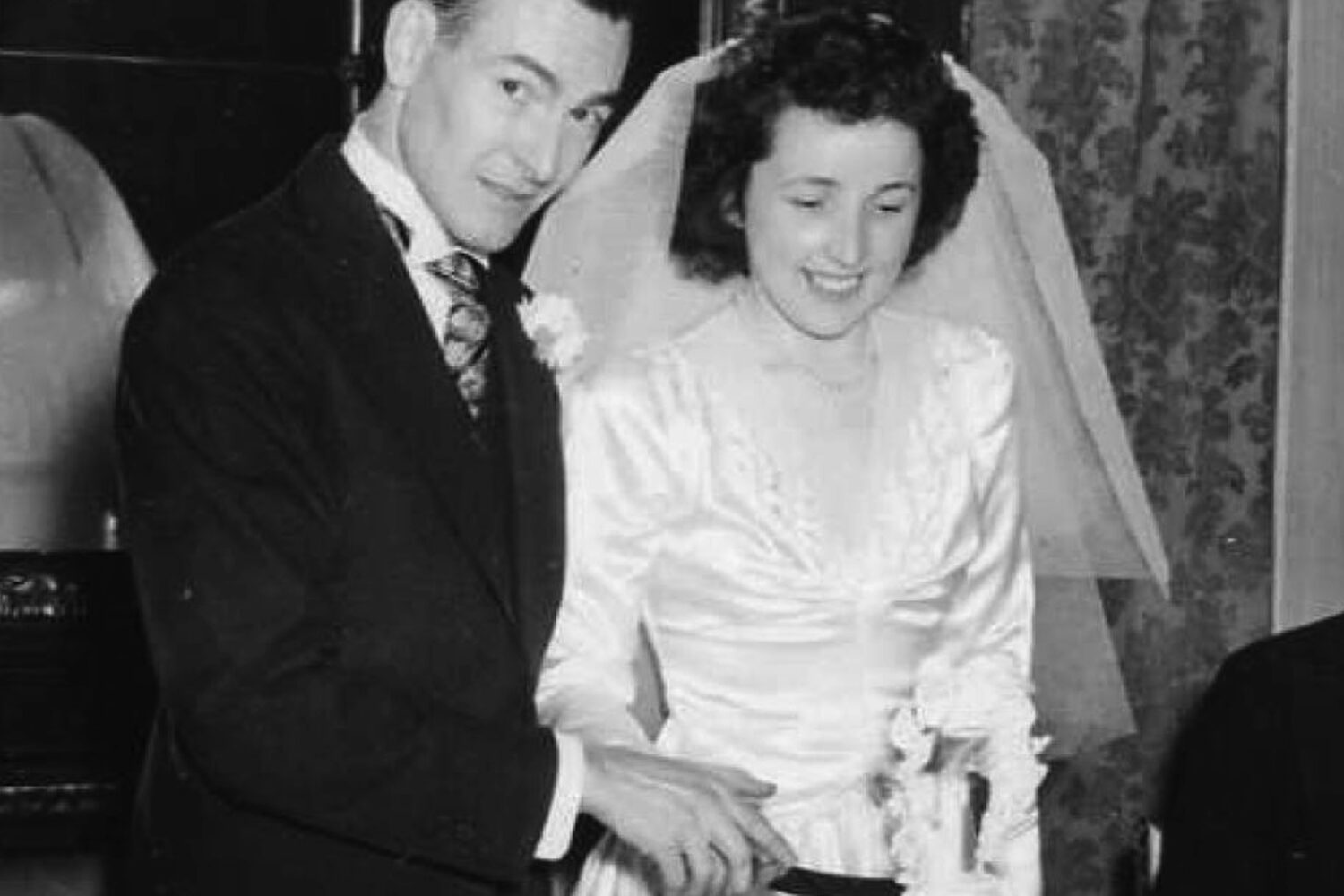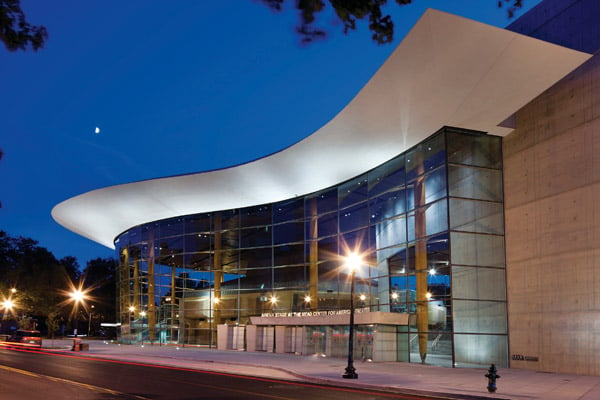Seven years ago, Dajando Smith was at work at Atomic Music in Beltsville when a friend he hadn’t seen for 20 years approached him with checkbook in hand. The friend was in a 12-step program and was out to make amends—in this case, apologizing to Smith for losing the custom bass guitar Smith had loaned him. Smith was unaware that his friend had a problem. “I never went to the police,” Smith says. For weeks, he’d called, shown up at the guy’s house, and was stood up multiple times before he realized that his beloved Hamer Blitz bass was gone forever.
The bass was a Christmas present in 1985, a custom job made by Hamer Guitars of Palatine, Illinois, a small luthier that punched well above its weight to become the favored ax of artists like Glenn Tipton of Judas Priest and Nikki Sixx of Mötley Crüe. Hamer allowed musicians to custom-order their instruments, a service that would have been difficult to get from bigger manufacturers.
Smith was 16, lived in Laurel, and had been playing bass for a few years. His first instrument was an Ibanez copy of a Fender Precision bass. But he was ready to step up to something better: the Hamer Blitz bass, whose shape was based on the Gibson Explorer, with an angular, futuristic body that looked nothing like most guitars then.
Armed with a template from Chuck Levin’s Washington Music Center in Wheaton, Smith designed an artifact so perfectly Reagan-era that it could probably make Kelly LeBrock teleport into your living room if you played it loud enough. Inspired by the Japanese-ish aesthetic that bobbed in the wake of The Karate Kid and countless headbands on New Romantic artists, the bass would have a huge rising sun in the center of its body, which was crisscrossed with a delicate grid. “It was either that or it was going to be snakeskin,” Smith says. “I think I made a better decision.”
Smith’s first name appeared on the bass twice—once in Roman letters on the headstock, and again in Japanese on the body (Hamer supposedly sent an employee to a nearby Japanese restaurant to find someone to convert Smith’s name to Katakana). His parents paid $750 for it—about $1,800 in 2020 dollars.
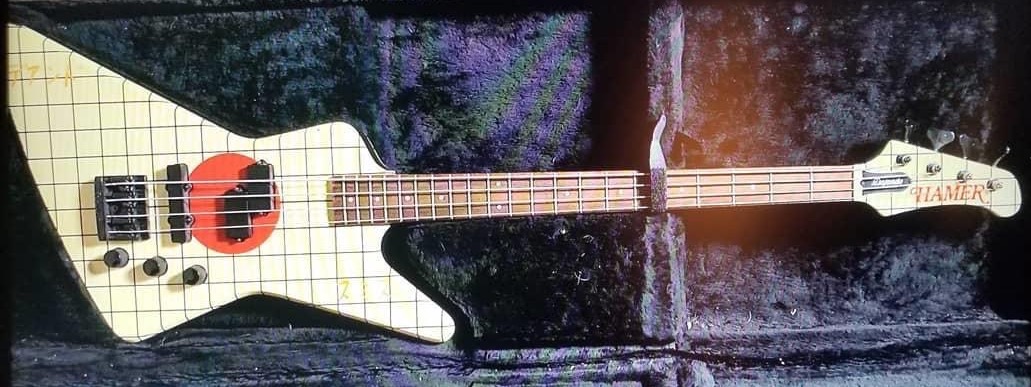
He waited for months for it to arrive, then proceeded to play the living heck out of it, performing metal with some groups, go-go with others, and joining his uncles to play with the Queens Chapel Male Chorus on the weekends. And then, in 1993, he made the fateful mistake. “I had a friend”—a fellow bassist—”who I thought was my trustworthy best friend,” he says. “I loaned it to him for a week and didn’t know he had a problem and never saw it again.”
Smith caught sight of the bass online in 2001—a guy had just bought it from a shop in upstate New York. Smith asked about buying it back on September 10, 2001, but by the next day, he says, “everybody’s priorities kind of changed.” The new owner wasn’t interested in selling, and, really, what did a missing bass matter in a country reeling from a large domestic terror attack? Smith moved on, working at Potomac Video, Weis Markets, and Atomic; gigging around town with locals like HR, W. Ellington Felton, and Raheem DeVaughn; and visiting acts like Jill Scott and Ja Rule. He and his long-term partner had a son.
Then, a couple of years ago, he was giving a bass lesson to a friend, and talk turned to the missing Blitz. It turned out his friend, Michael Matthes, was the son of a Hamer fanatic. “I bet you we can find it for you,” Matthes told him. “I bet you I know who has it.”
Peter Fung lives in San Francisco, and his massive instrument collection tends to be described in terms like “makes Viagra unnecessary for Hamer nerds.” Turns out he had been looking for Smith ever since he acquired the bass from an East Coast collector in the early 2000s. “I actually tried to track down information on the bass, as clearly Dajando has a unique name. I was able to find out that it was owned by a well-respected bass player in the DC area,” Fung writes in an email to Washingtonian. But aside from a video of Smith playing a different bass that he found on MySpace, Fung couldn’t quite make the connection.
Finally, after Mathis located the bass, Smith and Fung connected over Facebook. “I told him when he was ready, that he knew where the bass would be,” Fung says. He offered to sell it to Smith for the same price he paid, not the higher price he’d probably get for auctioning it off. “I see myself as a foster home for my pieces,” Fung says. “I am just a caretaker ’til it is time for it to move on to the next lucky person, or in this case, reunite two old friends.”
That price—$2,150—was too high for Smith. Last year, his partner and their 10-year-old son moved to Arizona. For a working musician and a parent in the midst of a wrenching separation, two grand might as well have been two million. He moved back home to his mom’s house in Laurel. The reunion with his bass, once again, would have to wait.
Enter G.L. Jaguar, a longtime friend of Smith’s. The two had started playing together in a group called Exotiq Int’l after Jaguar’s band Priests broke up. When Smith told Jaguar about the bass, his friend urged him to view its return as a must-have, not a nice-to-have. “He kept going, ‘You know, you really need to get that bass back,'” Smith says.
Smith is “one of the most talented musicians I know,” Jaguar says. Jaguar realized he could use Priests’ platform to raise the money to bring the bass back to Washington. “This year has been particularly hard on a lot of people,” Jaguar says. And for musicians whose primary source of income is playing live, it’s been devastating.
On August 23, Jaguar launched a GoFundMe called “Reunite Dajando with his long lost bass!” He thought it might take a few weeks to raise the money. Instead, fueled by contributions mostly from DC-area musicians in the same financial boat, it took two days to reach the goal. “I wish I was in the position where I could have just given the bass back to Dajando, and bless that Gideon was able to make it happen,” Fung says. “I don’t see it as a selfless act; I see it as the right thing to do. Especially now with everything going on in the world, I think we could all use a little positivity to help us get through the tough times.”
On Wednesday, Smith walked into Exotiq Int’l’s practice space on 14th Street, Northwest. There, he saw a guitar case that he describes as a “portable monolith.”
“I’m like, NO SHIT,” he says. “I know that case! I know that case!” He opened it and picked up his long-lost bass. It had a few hairline cracks, some dings that it had acquired over the years, and it needed a setup—a term musicians use for how guitar techs adjust an instrument to play just right—but it still looked amazing and sounded great. Emotion washed over him. “I know it’s an inanimate object,” he says. “But it’s something I designed. It’s something I haven’t seen for 27 years.”
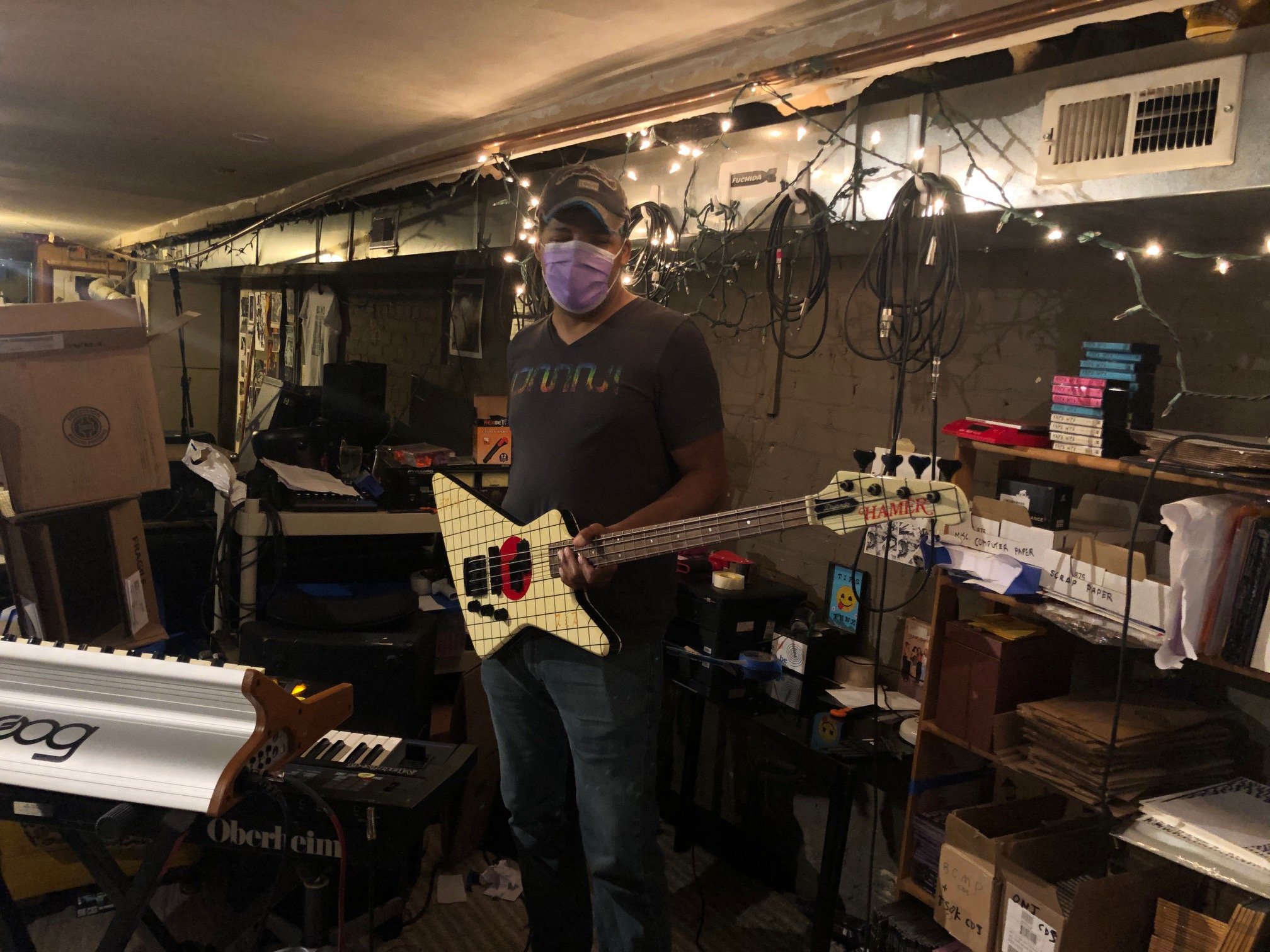
His mother couldn’t believe it. “That’s not what I think it is?” she asked him after he managed to muscle it into his 2001 Saturn and drive it home (the case is too big to fit in its trunk; he had to put the seats down). “You know I told you you’d get it back, right?” his dad said. Now the instrument is not only with its original owner, but also in the house it first lived in. Smith plans to bring it back to Chuck Levin’s to show the salesman who sold it to him, who is still there.
“It just goes to show how loved Dajando is in our community,” Jaguar says the financial sacrifice DC musicians made to facilitate this reunion. “He really touches a lot of people’s lives.”
“I was lucky enough to have the chance to own, play, enjoy the bass and be a part of its history, but it is back in its rightful owner’s hands,” Fung says. “On top of this, I think I will have two great friends from this experience and an amazing story that we can one day sit down together and truly smile over.”
“I’m sitting here and trying not to bawl and be emotional,” Smith says. “I never thought I was ever going to hold it again.”

